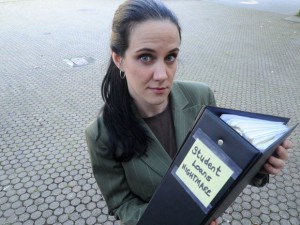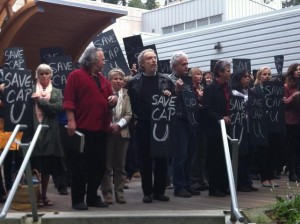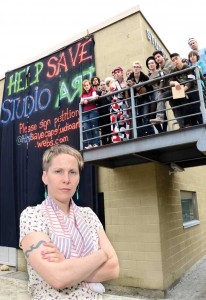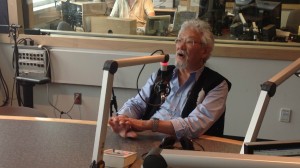News and Views from the
Centre for the Study of Education and Work (CSEW), OISE/UT
http://www.csew.ca
NEWS & VIEWS
‘PUSHED TO THE EDGE,’ SEATTLE’S LOW WAGE WORKERS JOIN SWEEPING MOVEMENT
By Lauren McCauley, Common Dreams In the seventh action in just eight weeks across the United States, fast food workers in Seattle are walking off the job Thursday joining a sweeping movement of low-wage workers who have been “pushed to the edge and are now taking a stand.” “We work in one of the fastest growing industries in the nation, and our companies are making huge – even record – profits, but we barely earn enough to pay for basics like rent, food and transportation to and from work.” -Caroline Durocher, striking worker Repeating the calls made by striking workers in other cities, the Seattle workers are demanding a living wage of $15 per hour and the right to form a union without intimidation. Read more: http://www.commondreams.org/headline/2013/05/30-7
THE COST OF A BARGAIN From The Maytree Foundation As Alan Broadbent writes in this month’s Maytree Opinion, we all have become used to the notion that we can get most things cheap or free. But when we are faced with the true cost of things, we don’t like it. We only have to look at areas such as housing, transit or maintenance of public spaces to see what happens when we expect high quality while preserving the fiction that we can have things cheap. Read more: http://maytree.com/spotlight/the-cost-of-a-bargain.html
THE CASE FOR A CANADA SOCIAL REPORT By Ken Battle and Sherri Torjman, The Caledon Institute The demise of the National Council of Welfare, announced in the 2012 Federal Budget, has punched a huge hole in Canada’s social policy database. The Council’s annual Welfare Incomes and Poverty Profile reports have for decades provided invaluable information on welfare and low income. Rather than simply lamenting this loss, the Caledon Institute of Social Policy is acting to rescue this important data by taking over its preparation and distribution. The welfare and poverty information will form part of a new Canada Social Report. Read more: http://www.caledoninst.org/Publications/Detail/?ID=1011
HEALTH CARE SPENDING IN ONTARIO CONTINUES TO DECLINE By Doug Allan, The Bullet Contrary to the hysteria from conservatives, health care spending continues to decline as a percentage of the provincial budget. Last year, health care accounted for 38.5 per cent of total expenditures, this year the government plans to bring it down to 38.3 per cent. This continues the trend downward since 2003/04 when health care accounted for 40 per cent of total expenditures. The Ontario provincial Budget reports that program spending is going up an impressive sounding 2.99 per cent and health care spending is going up 2.3 per cent. Although that sounds like a larger than expected increase in these days of austerity, these figures are, unfortunately, misleading. The reason is that last year funding fell well short of the Budget plan and the government is now playing catch-up. Read more: http://www.socialistproject.ca/bullet/826.php
VIDEO – CSEW’S D’ARCY MARTIN GIVEN UNITED ASSOCIATION FOR LABOR EDUCATION’S 2013 LIFELONG ACHIEVEMENT AWARD Watch the video: http://vimeo.com/65786753
ABOUT CSEW (CENTRE FOR THE STUDY OF EDUCATION & WORK, OISE/UT):
Head: Peter Sawchuk Co-ordinator: D’Arcy Martin The Centre for the Study of Education and Work (CSEW) brings together educators from university, union, and community settings to understand and enrich the often-undervalued informal and formal learning of working people. We develop research and teaching programs at the Ontario Institute for Studies in Education (UofT) that strengthen feminist, anti-racist, labour movement, and working-class perspectives on learning and work. Our major project is APCOL: Anti-Poverty Community Organizing and Learning. This five-year project (2009-2013), funded by SSHRC-CURA, brings academics and activists together in a collaborative effort to evaluate how organizations approach issues and campaigns and use popular education. For more information about this project, visit http://www.apcol.ca. If you have any questions about the list, or have an event you would like to promote or news to share, send an email to csew-broadcast-oise-l@listserv.utoronto.ca. Messages will be reviewed before posting. For more information about CSEW, visit: http://www.csew.ca

 Follow
Follow




